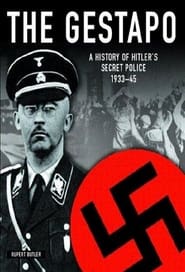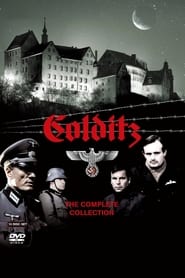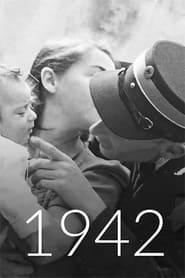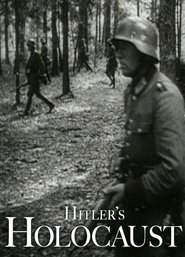
The Gestapo: Hitler's Secret Police - Season 1 Episode 2 The Sword Is Unsheathed
With opposition quelled in Germany and the annexed territories of Austria and the Sudetenland, Hitler's plans could proceed. When the Nazis faked incidents at the border with Poland, it gave them the excuse to invade. And the Gestapo, the Secret State Police, was at the heart of it. The Gestapo's role changed from merely "protecting" the state from dissent to enabling its expansionist policies. As the Reich took over new territories, the Gestapo expanded its policies of seeking out enemies--dissenters, spies working for the Allies, and organized resistance. When security chief Heydrich was assassinated in Prague, the Gestapo carried out the brutal revenge. But it viewed its ultimate enemy as the Jew and death-squads, the Einsatzgruppen spent much time tracking them down and deporting them to the death camps. Hitler placed this task in the hands of the Gestapo, and the chief bureaucrat of the Holocaust, Adolf Eichmann, was Muller's special protégé.
- Title: The Gestapo: Hitler's Secret Police
- Year: 2004
- Genre: Documentary, War & Politics
- Country: Germany, United States of America
- Studio: History, A&E
- Director:
- Cast: Struan Rodger
- Crew: Wolfgang Schöne (Director), Holger Hillesheim (Director), Jonathan Schütz (Director), Martin Buchmann (Editor), Nicholas Singer (Music), Wolfgang Schöne (Writer)
- Keyword: world war ii, historical
- Runtime: 48 minutes
- IMDb: 0.00 / 10 by 0 users
- Popularity: 2.778
- First Air Date: Nov 24, 2004
- Last Air date: Dec 08, 2004
- Season: 1 Season
- Episode: 3 Episode
- Language:
 Apple TV
Apple TV Google Play Movies
Google Play Movies Fandango At Home
Fandango At Home Netflix
Netflix Amazon Prime Video
Amazon Prime Video Amazon Video
Amazon Video MUBI
MUBI







































